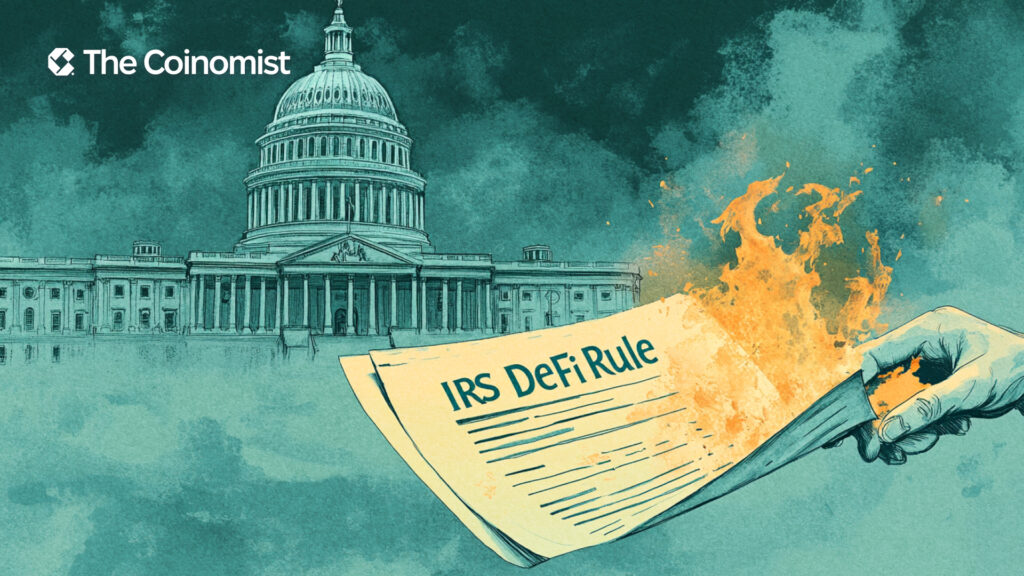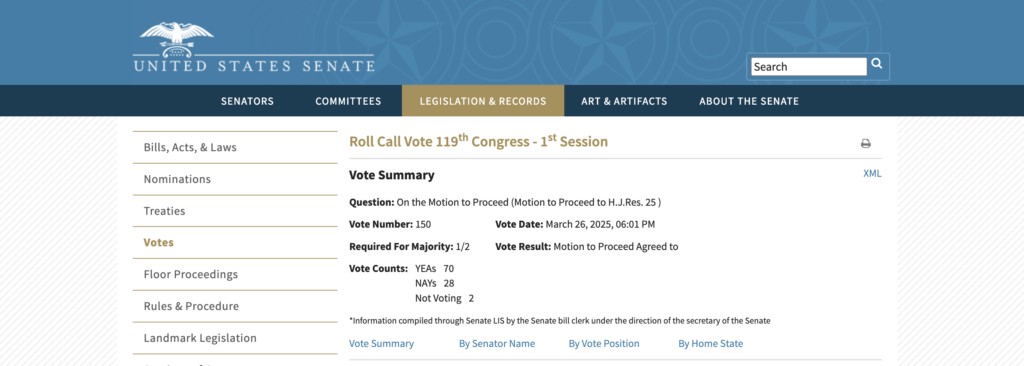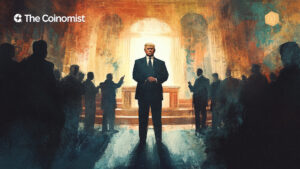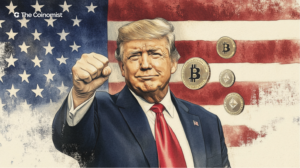Senate Repeals IRS Rule That Threatened DeFi’s Future

The U.S. Senate just told the IRS to back off DeFi providers. Now the repeal bill heads to President Trump. Could this be a turning point for crypto policy?
On this page
With a commanding 70–28 vote, the Senate officially repealed the contested IRS rule. Lawmakers cited growing fears that the regulation could stifle innovation across crypto platforms and lead to excessive bureaucratic pressure.
Senior White House figures, including crypto policy lead (a.k.a. Crypto Czar) David Sacks, confirmed that President Trump supports the repeal.

The resolution passed through multiple stages. After clearing the House of Representatives on March 11, it was taken up by the Senate. A prior Senate version had failed due to procedural conflicts with legislative drafting requirements.
The vote did not go unnoticed. Business leaders and government officials alike followed the outcome closely, knowing full well that DeFi regulation sits at the fault line of the new economic order.
The rule in question would have forced DeFi protocols to comply with IRS reporting rules designed for traditional brokers—a mismatch many called absurd. Yet despite sharp industry criticism, some senators and analysts still argue for its validity.
A Divided Reaction from the Crypto Community
To some, the repealed rule was a safeguard—an instrument of transparency and accountability in a realm often accused of enabling tax evasion. To others, it was a threat: a blunt bureaucratic tool poorly suited for the delicate architecture of decentralized finance.
Check this out: World Liberty Financial Introduces USD1 Stablecoin
Kristin Smith, who leads the Blockchain Association, praised the Senate's decision, calling it “a vital move to clear regulatory obstacles stifling crypto innovation.” Her sentiment was echoed by Eli Cohen of Centrifuge, who dismissed the rule as “illogical and inoperable in practice.”
The rollback of the disputed IRS rules could prove a milestone in shaping smart, flexible digital asset regulation. The Senate vote reflects a growing push for a more balanced framework—one that supports innovation without compromising tax compliance.
All eyes now turn to the U.S. President, whose signature will finalize the decision.
The content on The Coinomist is for informational purposes only and should not be interpreted as financial advice. While we strive to provide accurate and up-to-date information, we do not guarantee the accuracy, completeness, or reliability of any content. Neither we accept liability for any errors or omissions in the information provided or for any financial losses incurred as a result of relying on this information. Actions based on this content are at your own risk. Always do your own research and consult a professional. See our Terms, Privacy Policy, and Disclaimers for more details.

























